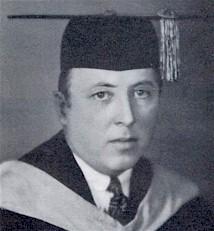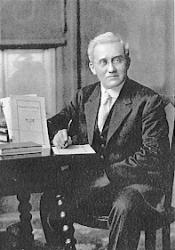Planning worship?
Check out our sister site, ZeteoSearch.org,
for 20+ additional resources related to your search.
- |
User Links
Person Results
‹ Return to hymnal




Export as CSV
W. S. Pitts
1830 - 1918 Person Name: William S. Pitts Hymnal Number: 367 Author of "The Church in the Wildwood" in Favorite Hymns of Praise William Savage Pitts MD USA 1830-1918. Born at Yates, NY, the son of Puritans, he was the 8th of nine children. He had musical ability from an early age, taking formal music lessons from a graduate of the Boston Handel & Hadyn Society. At age 19, he traveled with his family to Rock County, WI, where he worked as a rural music schoolteacher in Union, WI. He taught for several years, there and at singing schools, and for brass bands, composing much of their music. In 1857 he traveled to Fredericksburg, IA, to visit his fiancee, Ann Eliza Warren, a teacher. Along the way he stopped his horse-drawn wagon at Bradford, IA, to rest. He walked across a field and saw a picturesque wooded valley formed by the Cedar River. Viewing the spot, he envisioned a church building there. He couldn’’t get the image out of his mind. Returning home to WI, he wrote out the words to a poem about the envisioned scene, calling it “Church in the wildwood”, for his own sake. He was then at rest about it. In 1862, he was married in Union, WI, and he and his wife moved to Fredericksburg to be near her elderly parents. Upon returning to Iowa, Pitts stopped along the route at the same location he had five years before to see it again. He was surprised to see a little church being built, and being painted brown. He met with the builders and asked why it was being painted brown, finding out that it was the cheapest paint they could find.. money being tight. The church builders, learning about his poem written several years earlier, asked him to bring his church choir to the dedication and sing a dedicatory song. In 1863 he did so. This was the first time the song was sung in public. The Pitts remained at Fredersicksburg, IA, for 44 years and had five children: Nellie, Grace, Alice, William, and Kate. Pitts served as mayor of Fredericksburg for seven years, as school treasurer for 26 years, wrote a biographical local history, and was a Master Freemason. In 1865 Pitts moved to Chicago to enroll at Rush Medical College. While there, to pay expenses, he offered several songs he had written to a music publisher, who chose his song “Little brown church in the vale”, and he sold the rights to his song for $25. He completed medical school, graduating in 1868, but the song was largely forgotten for several decades. Pitts practiced medicine in Fredericksburg until 1906. His wife died in 1886, and he remarried to Martha Amelia Pierce Grannis in 1887. They moved to Clarion, IA, in 1906. She died in 1909. Pitts then moved to Brooklyn, NY, to be with his son, William, who was working for the U. S. War Department. Pitts joined Fredericksburg’s Baptist Church in 1871, then the Congregational Church in Clarion, IA, in 1906, and later the Dyker Heights Congregational Church in Brooklyn, NY, in 1909. He occasionally performed his most famous song. He died at Brooklyn, NY, but was buried in Fredericksburg, IA.
John Perry
W. S. Pitts
M. J. Harris
1865 - 1919 Person Name: Mrs. M. J. Harris Hymnal Number: 32 Author of "I Will Praise Him" in Favorite Hymns of Praise Margaret Jenkins Harris USA 1865-1919. Born in Rushville, IL, she married evangelist, John Harris, and they were active in holiness meetings as musicians and song evangelists. She played the organ for accompaniment to their duets. She was also known as an effective preacher with strong messages. She was a member of the Iowa Holiness Association. She and her husband served as music directors for the 1901 General Holiness Convention in Chicago, IL. She also edited the “Glorious Gospel In Song” hymnbook for the Christian Witness Publishing Company of Chicago. She died in Miami, FL.
John Perry
M. J. Harris
Earl Marlatt

1892 - 1976 Hymnal Number: 261 Author of ""Are Ye Able," Said the Master" in Favorite Hymns of Praise Marlatt, Earl Bowman. (Columbus, Indiana, May 24, 1892--June 13, 1976, Winchester, Ind.). One of twin boys, he was born into the family of a Methodist Episcopal minister at Columbus, Ind. Graduating from DePauw University, Phi Beta Kappa, in 1912, he continued his studies at Harvard and Boston Universities, Oxford, England, and the University of Berlin. Upon returning to America he spent one year in newspaper work at Kenosha, Wisconsin, and then joined the United States Army, serving as a second lieutenant of field artillery in World War I.
He joined the staff at Boston University as Associate Professor of Philosophy in 1923, becoming Professor two years later, was Professor of Literature, Boston University School of Theology, and Dean, 1938-1945. In 1946 he became Professor of Philosophy of Religion at Perkins School of Theology, Southern Methodist University, Dallas, Texas. Member of many learned societies, a poet of distinction, he won the Golden Flower at the May Day Poetry Tournament in Boston, 1925, and has been President of both the Boston Browning Society and the Boston Authors' Club. A writer of prose as well as verse he has contributed widely to American journals. Marlatt was closely associated with and was literary advisor to H. Augustine Smith who compiled a series of hymnals during the 1920s, most of which were for young people. He was associate editor of The American Student Hymnal, 1928, one of the Smith books, and for many years a member of the Executive Committee of the Hymn Society.
Sources: Who's Who in America; handbooks of various hymnals; personal acquaintance and correspondence.
--Robert G. McCutchan, DNAH Archives
Earl Marlatt
John Hughes

1873 - 1932 Hymnal Number: 476 Composer of "[Guide me, O thou great Jehovah]" in Favorite Hymns of Praise John Hughes (b. Dowlais, Glamorganshire, Wales, 1873; d. Llantwit Fardre, Wales, 1932) received little formal education; at age twelve he was already working as a doorboy at a local mining company in Llantwit Fardre. He eventually became an official in the traffic department of the Great Western Railway. Much of his energy was devoted to the Salem Baptist Church in Pontypridd, where he served as both deacon and precentor. Hughes composed two anthems, a number of Sunday school marches, and a few hymn tunes, of which CWM RHONDDA is universally known, the tune was composed in 1905 Baptist Cymanfa Ganu (song festival) in Capel Rhondda, Pontypridd, Wales.
Bert Polman
John Hughes
Jack P. Scholfield
1882 - 1972 Hymnal Number: 231 Author of "Saved, Saved!" in Favorite Hymns of Praise
Jack P. Scholfield
Frederick M. Lehman

1868 - 1953 Hymnal Number: 166 Author of "The Love of God" in Favorite Hymns of Praise Frederick Martin Lehman, 1868-1953
Born: August 7, 1868, Mecklenburg, Schwerin, Germany.
Died: February 20, 1953, Pasadena, California.
Buried: Forest Lawn Memorial Park, Glendale, California.
Lehman emigrated to America with his family at age four, settling in Iowa, where he lived most of childhood. He came to Christ at age 11, as he relates:
One glad morning about eleven o’clock while walking up the country lane, skirted by a wild crab-apple grove on the right and an osage fence, with an old white-elm gate in a gap at the left, suddenly Heaven let a cornucopia of glory descend on the eleven-year old lad. The wild crab-apple grove assumed a heavenly glow and the osage fence an unearthly lustre. That old white-elm gate with its sun-warped boards gleamed and glowed like silver bars to shut out the world and shut him in with the ’form of the fourth,’ just come into his heart. The weight of conviction was gone and the paeans of joy and praise fell from his lips.
Lehman studied for the ministry at Northwestern College in Naperville, Illinois, and pastored at Audubon, Iowa; New London, Indiana; and Kansas City, Missouri. The majority of his life was devoted to writing sacred songs; his first was written while a pastor in Kingsley, Iowa, in 1898. He wrote and published hundreds of songs, and compiled five song books. In 1911, he moved to Kansas City, where he helped found the Nazarene Publishing House.
--www.hymntime.com/tch
Frederick M. Lehman
John Zundel
1815 - 1882 Hymnal Number: 45 Composer of "[Love divine, all loves excelling]" in Favorite Hymns of Praise John Zundel; b. 1815, near Stuttgart, Germany; organist in Brooklyn, N. Y., from 1847 to 1878; d. Cannstadt, Germany, 1882
Evangelical Lutheran Hymnal, 1908
John Zundel
James G. Small
1817 - 1888 Hymnal Number: 370 Author of "I've Found a Friend" in Favorite Hymns of Praise Small, James Grindly, son of George Small, J.P. of Edinburgh, was born in that city in 1817. He was educated at the High School, and the University of Edinburgh. He studied divinity under Dr. Chalmers, and in 1843 he joined the Free Church of Scotland. In 1847 he became the minister of the Free Church at Bervie, near Montrose. He died at Renfrew, Feb. 11, 1888. His poetical works were (1l) The Highlands and other Poems, 1843, 3rd ed. 1852; (2) Songs of the Vineyard in Days of Gloom and Sadness, 1846 ; (3) Hymns for Youthful Voices, 1859; (4) Psalms and Sacred Songs, 1866. His well-known hymn "I've found a Friend; oh such a Friend" (Jesus, the Friend), appeared in his Psalms & Sacred Songs, 1866. It is found in I. D. Sankey's Sacred Songs and Solos, 1878, and others.
--John Julian, Dictionary of Hymnology, Appendix, Part II (1907)
James G. Small
Freeman Lewis
1780 - 1859 Hymnal Number: 105 Composer of "[O thou in whose presence my soul takes delight]" in Favorite Hymns of Praise Freeman Lewis USA 1780-1859. Born at Basking Ridge, NJ, he became a surveyor, writer, and traveling school teacher who played the organ and wrote music on the side. His family moved to Fayette, PA, in 1796. In 1809 he married Rebecca A Craft, and they had 11 children: Runyan, David, George, James, John, William, Levi. Alpheus, Thomas, Margaret, and Mary Ann. Three died young (of flux and scarlet fever). He compiled and published a book of camp meeting hymns and other sacred music:”The beauties of harmony” (1813-16-18), which included some of his own compositions. An appendix to it contained explanations of musical terms amd rules and principles of composition. These were sometimes used in singing schools. He also served as county surveyor of Fayette County, PA (1823-36) and helped Jonathan Knight survey and find a route for the Chesapeake & Ohio Canal. He served as organist for the Presbyterian Church in Uniontown, PA. His wife died in 1844, after which he moved to Knox. OH. His works include a 300 page family history, attesting to his being well-educated and having interest in many subjects. He died at Knox, OH.
John Perry
Freeman Lewis
W. Stillman Martin

1862 - 1935 Hymnal Number: 293 Composer of "[Be not dismayed whate'er betide]" in Favorite Hymns of Praise Born: March 8, 1862, Rowley, Massachusetts.
Died: December 16, 1935, Atlanta, Georgia.
Buried: Westview Cemetery, Atlanta, Georgia.
Husband of hymnist Civilla Martin, Stillman attended Harvard University and was ordained a Baptist minister, though he later switched to the Disciples of Christ denomination. In 1916, he became a professor of Bible studies at Atlantic Christian College in Wilson, North Carolina. Three years later, he moved to Atlanta, Georgia. It was from there he went all over America to run Bible conferences and evangelistic meetings.
Sources:
Hustad, p. 282
http://www.hymntime.com/tch/bio/m/a/r/t/martin_ws.htm
W. Stillman Martin


 My Starred Hymns
My Starred Hymns


